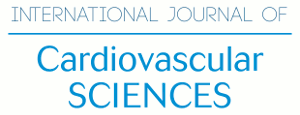Abstract
Chronic Chagas disease cardiomyopathy (CCC) is a result of low-intensity, but incessant, focal fibrosing myocarditis, caused by persistent T. cruzi infection associated with inflammation, mediated by adverse immune mechanisms. About 30 percent of infected individuals have developed throughout life the chronic cardiac form of Chagas' disease with protean clinical manifestations, such as sudden death, signs and symptoms of heart failure, cardioembolic events, arrhythmia and angioid symptoms. Sudden death and the progression of heart failure (HF) are the most common mechanisms of death in this condition. The most relevant prognostic aspects are symptoms of advanced HF (NYHA Fc III-IV), cardiomegaly, LV systolic dysfunction and nonsustained ventricular tachycardia. Preventing cardioembolic events is an important aspect in the management of patients with CCC. Oral anticoagulant agents must be prescribed for high-risk patients according to the presence of a set of risk factors: LV systolic dysfunction, apical aneurysm, altered ventricular repolarization by ECG and advanced age. The treatment of HF in patients with CCC follows the same principles applied to HF secondary to dilated cardiomyopathy of other etiologies.
Keywords
Cardiomyopathies; Chagas Cardiomyopathy; Trypanosoma Cruzi; Chagas Disease; Heart Failure








